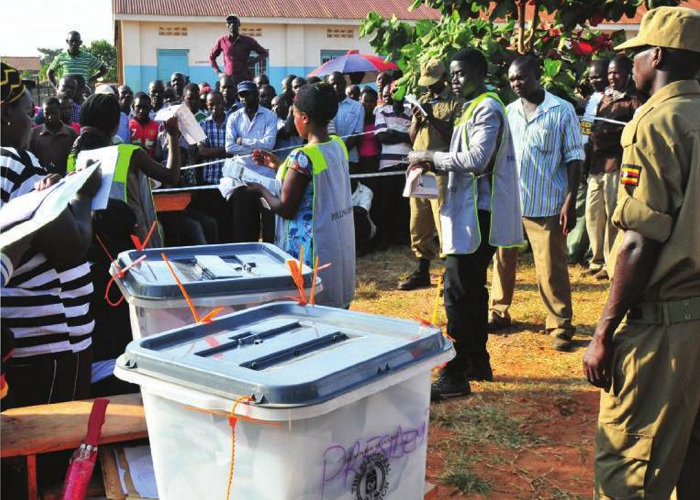
Electoral Commission criticized as cost of elections to be repeated nears Shs30bn
About 25% of the outcomes of the 488 parliamentary elections conducted in February are being challenged in courts of law. That is not to mention the main one; the presidential election, which was also challenged in court. If even just half of the petitions in court succeed, organising fresh elections could cost the nation over Shs30 billion (Approx.US$90 million). Each fresh election costs about Shs300 million, writes Agather Atuhaire.
Concern is mounting that spending that money on by-elections that could have been avoided is shameful in a country where other important sectors remain grossly underfunded.
The Uganda Cancer Institute, which needs Shs30 billion to build a bunker to house the only proposed radiotherapy machine, is mentioned. The ministry of Finance has failed to provide that money. Currently, cancer patients have to travel to neighbouring Nairobi-Kenya for treatment or be left to die since the country’s only radiotherapy machine broke down early this year.
The opening of the country’s public universities for the new academic year has been frustrated as the non-teaching staff laid down their tools over unpaid salary arrears for six months. The government owes them about Shs28.5 billion which President Yoweri earlier said the government would pay but has since turned around and said the money had better uses.
The country has not also held Local Council one elections since 2001. The exercise requires Shs35 billion.
There is increasing concern that whereas the government has failed to finance the above urgent items and more, it is likely to quickly find money to finance by-elections resulting from botched elections.
“This kind of madness only happens in Uganda where citizens are always burdened because of the recklessness of government agencies,” says Patrick Wakida, the executive director of the nation’s leading polling agency; Research World International.
“In a period when the Local Council I elections have been severally postponed because of lack of funds and when talk of economic distress is the order of the day, we must be seeking to be frugal while aligning the nation’s spending choices with the citizens’ priority interests,” says Crispy Kaheeru, the leader of the Citizens’ Coalition for Electoral Democracy Uganda (CCEDU); an NGO.
There is also growing fear that even the results of the fresh elections could again be challenged, unless the loopholes are plugged. Problem is that although many mainly opposition MPs and legal experts speak of a major problem, officials of the government and the Electoral Commission (EC) appear determined to put a brave face on it.
Of the 488 parliamentary elections that were conducted by the Electoral commission, 117 were challenged in court. Another 40 petitions are from Local Council elections. The reasons for the petitions range from lack of required academic papers, to voter bribery, and non-compliance with electoral laws.
As a result of the petitions, court has already thrown out more than 26 individuals out of parliament and declared fresh elections. Most of the cases are now on appeal in higher courts.
But the EC spokesperson, Jotham Taremwa says “it is too early to be worrying about by-elections”.
“Not all the petitions will be successful,” he says, “Even the petitions that have been ruled on have been appealed.”
But Kaheeru says the number of annulments will still be alarming considering the number of court petitions.
“Even though most court decisions will be appealed, the prospective number of by-elections that are likely to happen between now and 2021 is scary,” he told in an interview.
Most predictions are that the cost of byelections will be far higher than the previous political termwhere more than Shs10 billion was spent on 21 by-elections.
Many commentators are also pointing at neighbouring countries, like Kenya, where citizens expressed disgust last year over the KShs1 billion that was spent on three by-elections. The by-elections resulted from President Uhuru Kenyatta’s appointment of three MPs as ministers yet article 152 of the Kenyan constitution bars sitting MPs from serving as cabinet secretaries.
The Kenyans were bitter that Kenyatta was deliberately being imprudent and subjecting the country to waste already limited resources on by-elections yet he could have picked ministers from other capable Kenyans who were not MPs.
The same thing happened in Zambia in 2013 when a section of Zambians was bitter that the ruling Patriotic Front party was compelling the government to spend resources on by-elections when the party appointed opposition MPs as deputy ministers. Opposition legislators accepting ministerial positions meant crossing to the ruling party which is against the Zambian constitution.
 The Independent Uganda: You get the Truth we Pay the Price
The Independent Uganda: You get the Truth we Pay the Price



